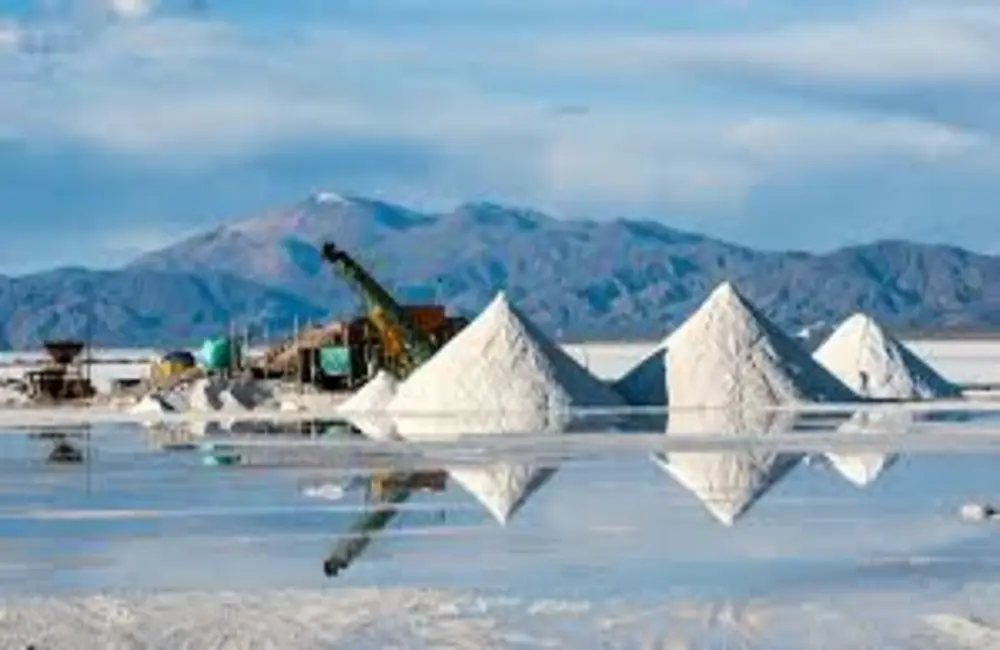Mexico’s nationalization of its untapped lithium resources has cast a shadow over the global search for new supplies of the battery metal and threatens to end up costing the country dearly
According to the US Geological Survey, the country is home to the 10th biggest lithium resource in the world at 1.7 million mt.
In April, Mexico passed a nationalization law for its lithium, and in August, President Andrés Manuel López Obrador decreed the formation of a state-owned lithium company, Litio para Mexico, or Lithium for Mexico, four months later on Aug. 23. The cash-strapped government believes controlling its lithium can take care of new spending, though it has released little detail about how far it will go to intervene in the market nor in what way private companies might join the country’s lithium sector.
This uncertainty could hamper Mexico’s hopes of becoming a key global lithium producer as the world scrambles to find new supplies of the metal amid a surge in electric vehicle demand, analysts told.
“Uncertainty around how the state-owned lithium entity... will work... can potentially push back the establishment of a profitable lithium industry in Mexico,” Cecily Fasanella said in an email. Fasanella is program coordinator at the Mexico Institute of the Washington-based think tank Woodrow Wilson International Center for Scholars.
The missing information
Litio para Mexico is set to be granted exclusive rights to exploit the country's lithium reserves. The company is set to begin operating within six months, but rules on how the government handles existing concessions and awards new ones have yet to be formalized.
The president also promised that lithium exploration in Mexico would be reserved solely for national development, in a new wave of resource nationalism sweeping Latin America. Mexico is in talks with Argentina, Bolivia, and Chile, the countries that compose the so-called Lithium Triangle in South America, about creating a lithium association in which they would share experiences and work together on developing new technologies for the extraction of the commodity.
López Obrador hasn’t ruled out some private sector collaboration. Mexico lacks experience in the lithium sector, but miners have few clues about how they would be permitted to operate.
Private sector peeved
Litio para Mexico’s monopoly over the domestic industry would probably dissuade private companies from investing.
“If the state-owned lithium company has a robust monopoly with little regulatory oversight, it will likely dissuade private sector investment from entering the multibillion-dollar market,” Fasanella said.
In April, several business groups, including the Mexican arm of the International Chamber of Commerce and the Canadian Chamber of Commerce, raised red flags about the law’s potential to conflict with Mexico’s global trade obligations.
Mexico is a party to certain trade pacts that ban new restrictions on industries that were not previously reserved to the state, the groups said.
Fasanella said he did not think Litio para Mexico could begin mining operations before the end of López Obrador’s term in 2024 without help from the private sector, given the state of the country’s finances.
Mexico has a shortage of home-grown expertise. Lithium is primarily harvested from brines and hard-rock deposits by conventional means, but Mexico's lithium is mainly in the mineral form of clays, for which extraction technologies are still being established.
“This industry is capital-intensive and tech innovative,” Miguel Angel Marmolejo Cervantes, a professor at the Autonomous University of Nuevo León in Mexico, said in an email.
Livent, Allkem, and Albemarle, all of which have investments in other Latin American countries, did not reply to requests for comment.
The exception
When López Obrador signed the law that took control of domestic lithium, he also challenged all lithium concessions that had been previously granted, including one owned by an unnamed Chinese company. China’s Ganfeng Lithium had also recently acquired full ownership of the Sonora project, the world’s 14th-largest lithium project by primary reserves and resources, and Mexico’s largest, according to figures.
In June, López Obrador moderated his position regarding Ganfeng, announcing the government would respect the company’s Sonora project. The company did not respond to a request for comment.
If Mexico’s lithium development is delayed, it can impede an already-stressed lithium market that faces a supply deficit for the foreseeable future. Market Intelligence forecasts indicate a global supply gap for lithium carbonate equivalent of 39,000 mt in 2026 versus a projected surplus of 1,000 mt in 2022.






















